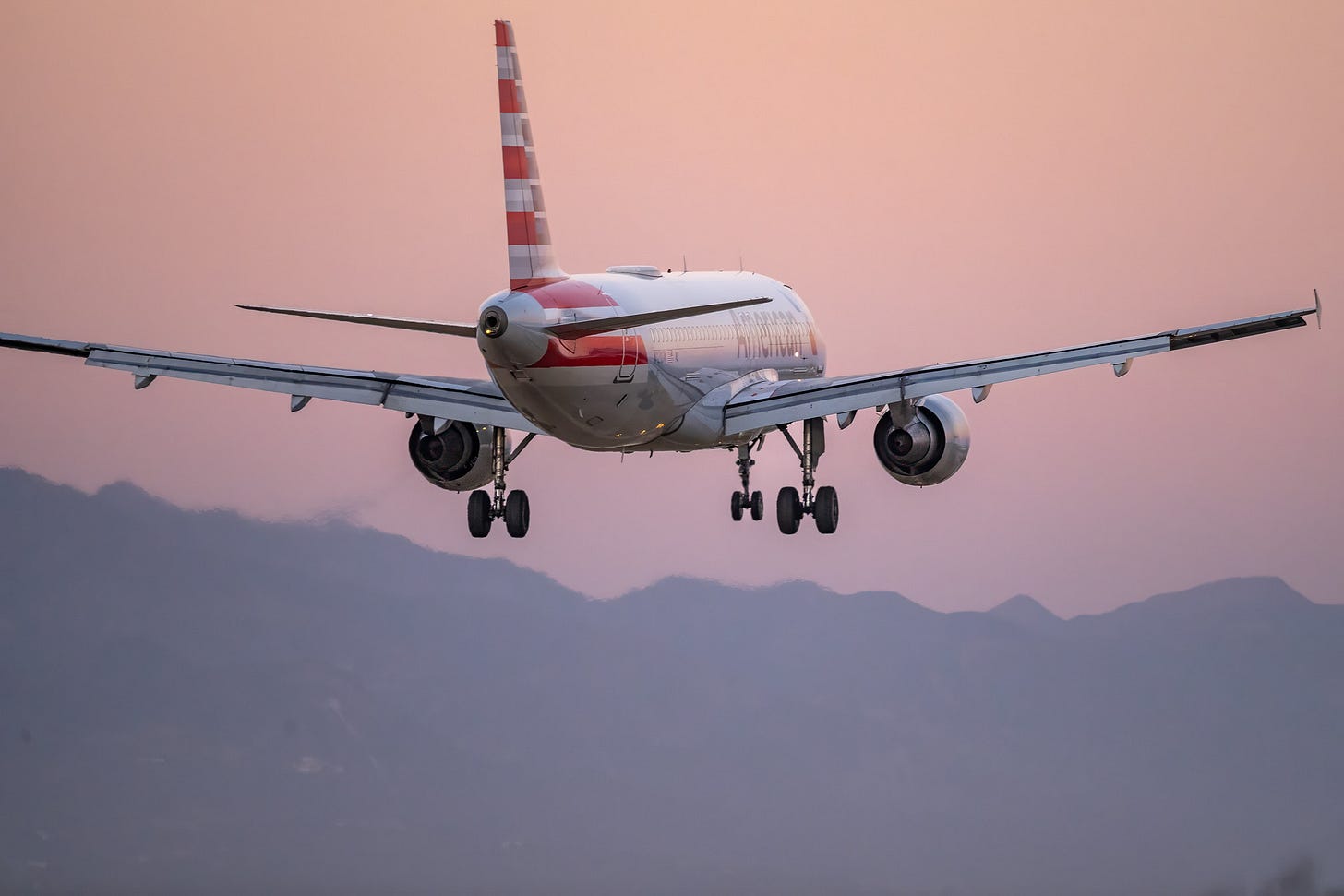
Since it's the end of the year, I’ve been reflecting on my favorite trips of 2024: California, Poland, and most recently, Ireland. As fun as the trips were, they also make me feel guilty: Just one of these flights emitted more climate pollution than many people do in a year.
Unfortunately, air travel is one of the few climate problems that lacks a clear technological fix. Whereas gas-powered cars can be replaced by electric vehicles, and coal-fired power plants can be replaced by renewables, no such switch exists for flying.
So what do you do with a climate problem that lacks clear solutions? Well, you get creative.
Airlines think they have the answer to their climate problem in carbon offsets — such as planting trees that suck in the climate pollution created by burning jet fuel. But such tactics are largely ineffective.
Airlines have since turned to sustainable aviation fuel (SAF), a fuel made of renewable biomass and waste that emits far less pollution than jet fuel. But such fuels are complicated: They’re way too expensive, and the land and energy needed to convert crops into SAFs can actually increase emissions.
Most airlines — and passengers for that matter — don’t want to hear this, but the most effective solution may be the simplest: flying less.
Take this 2023 study, which clearly lays out what’s needed to curb air travel’s climate pollution:
Reducing demand for air travel can cut the industry’s emissions by 61%.
Improving energy efficiency in planes can cut it by 27%.
Swapping out jet fuel for bio fuels can cover most of the remaining 12%.
But asking people to stop doing something they love isn’t that practical. In fact, it’s likely counterproductive, as people get defensive over habits and double down (ask your uncle to stop eating meat this Christmas and see what happens).
This makes air travel’s climate pollution seem unsolvable — or at least in the abbreviated timeframe to preserve a livable Planet. But even if we never slash flight emissions, the climate conundrum of flying teaches us a lot about our carbon-heavy habits.
First, air travel shows the incredible lengths we’ll go to do something we all like, even if it’s terrible for the Planet. Rather than fly less, we’ve invested billions into biofuels and batteries, hoping that technology alone will pull us out of this mess.
We see this in other climate problems: Rather than eat less meat, for example, we multiply and develop animal stem cells into muscle, fat, and tissue and then rearrange those cells into food.
Second, air travel shows that the growth economy — the capitalist notion that a company’s ultimate goal is to increase in goods and services — is often incompatible with climate solutions. How can airlines reduce flights when shareholders are expecting the opposite?
Third, some solutions, like high-speed trains, are viable alternatives to planes. But in the United States, trains are woefully underfunded compared to planes.
Even the bipartisan infrastructure law’s record $66 billion investment in passenger rail pales in comparison to the airline industry: During the pandemic, the federal government paid double that to bail out airlines.
(Also, you can’t take a train over the Atlantic Ocean.)
And finally, we’ve gotten used to the artificially low price of carbon-heavy goods and services, and now we don’t want to give them up.
Once you give something away for free (think parking), or drastically cut the price of it through subsidies (think gasoline), it’s really hard for customers to pay the true cost of that thing (which would account for air pollution, carbon emissions, infrastructure, etc.), or for politicians to enact taxes to reflect that cost.
And, again, the true cost of air travel is really expensive: One study finds that airlines must spend around $1 trillion to suck up climate pollution associated with air travel.
So, the next time someone says there’s no silver bullet to the climate problem of flying, don’t believe them. We have plenty of solutions. We just don’t want to hear them.






I think we forget that the amount we travel is a relatively new thing! I know people who take 3+ holidays a year because flying is so cheap, where for my parents generation, a holiday abroad might be a once every 3 YEAR activity!
I think it’s also a common tactic by the fossil fuel industry and its apologists to point to the insoluble emissions problems as a way of promoting climate nihilism. The fallacious argument goes, if we cant solve air travel (or concrete, or one of the other truly difficult problems), then why bother doing anything. Instead, we should—and must—insist on taking the easy actions we can do right now: building green energy, public transit infrastructure & bike lanes, incentivize or require electrification of appliances & buildings, and eliminate subsidies for fossil fuel extraction and use. We have to start somewhere, and thus far, we’ve barely started on the easiest measures. We can get to the problems of air travel later.